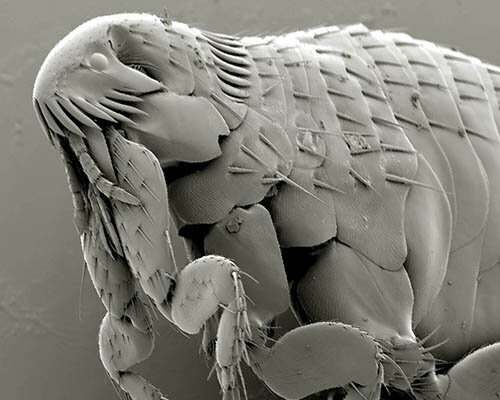Credit: University of Bristol
As many as one in four cats and one in seven dogs are carrying fleas, and about 11 per cent of these fleas are infected with potentially pathogenic bacteria, according to a large-scale analysis of owned animals in the UK. Flea bites can be painful and can cause allergic reactions in cats and dogs which is why the Big Flea Project findings highlight the need to re-educate pet owners on flea prevention.
The University of Bristol-led research funded by MSD Animal Health and published in the journal Parasites and Vectors, examined 812 cats and 662 dogs for fleas across 326 UK veterinary practices. Flea samples from each host were analysed for the presence of bacteria using PCR and sequence analysis.
Of the 812 cats examined, 28.1 per cent were found to be flea infested along with 14.4 per cent of the 662 dogs. The effects of flea blood-feeding and the pathogens they carry can result in clinical disease in cats and dogs and are of concern for veterinarians and pet owners. The study demonstrates the need to educate pet owners about the effects of both flea infestation and also the clinical risks these fleas present, particularly given the relatively high prevalence of Bartonella spp.
Professor Richard Wall, Professor of Zoology at Bristol's School of Biolgoical Sciences, said: "Fleas are the most clinically important ectoparasites of dogs and cats worldwide. Rising levels of pet ownership, climate change and globalisation are increasing the importance of a detailed understanding of the endemicity of fleas and prevalence of flea-borne pathogens. This requires continued surveillance to detect change. The results have demonstrated that high numbers of cats and dogs still carry fleas and shown the relatively high prevalence of Bartonella spp in fleas, which is of significant concern for the pet owners and veterinary practice staff."
Nicola Barclay, Senior Product Manager at MSD Animal Health comments: "The Big Flea Project results demonstrate the ongoing need for pet owners to understand the importance of prevention, particularly with the implications of infestation for human and animal health. It's particularly important at this time of the year as the weather is getting warmer and infestation is more likely to occur. Our national launch today has been designed to raise awareness amongst pet owners and encourage them to seek advice from the veterinary practice. Building awareness of the risks of fleas to practices and pet owners is also at the forefront of our ongoing campaign."
More information: Swaid Abdullah et al. Pathogens in fleas collected from cats and dogs: distribution and prevalence in the UK, Parasites & Vectors (2019). DOI: 10.1186/s13071-019-3326-x
Provided by University of Bristol























